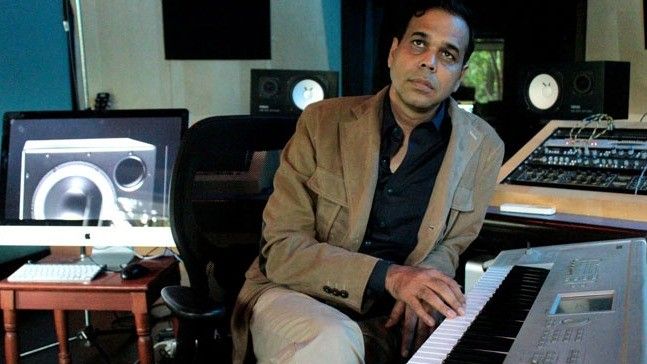
Acclaimed composer, musician and singer Sandesh Shandilya burst onto the filmi music scene when he composed four songs for Kabhi Khushi Kabhie Gham (2001): Suraj Hua Maddham, You Are My Soniya, Deewana Hai Dekho, and Vande Mataram, all of which became chartbusters. Some of the other notable films he has been part of are Chameli (2004), Socha Na Tha (2005) and Jab We Met (2007). Before that, he had won a MTV International Award for his first album Piya Basanti (2001), which was a fusion of Indian classical, Jazz and Sufi. Sandesh trained from an early age in Indian classical music from Shri Ram Bhartiya Kala Kendra, Delhi and came to Bombay at the age of 21, assisting music arranger Surinder Sodhi.
His latest album is called Harvest, which invites listeners to explore the transformative power of music in creating good vibes, cultivating happiness, nurturing friendships, and irrigating relationships with tracks such as Naina Barse, Jheelon pe Shaam and O Himalaya. Here are excerpts from our interview with him:

Q. What is the idea behind your latest album Harvest?
A. Harvest is, at its core, an experiment in uniting diverse musical perspectives while embracing a more global sound. Unlike Bollywood compositions, which are crafted to fit specific cinematic moments, Harvest allowed me to step outside those constraints and create music that’s not limited by storyline or character. Working with both established and emerging artists was a significant aspect of this album. Young artists bring a raw, uninhibited energy, and their curiosity pushes creative boundaries. Harvest is more than an album; it’s a conversation between generations and cultures.
Q. How did life change for you after the success of Kabhi Khushi Kabhie Gham?
A. Kabhi Khushi Kabhie Gham was a turning point. The film’s music connected with audiences on a massive scale, and its success opened doors to new opportunities. It brought recognition and allowed me to explore my musical ideas with greater freedom.
Q. Before that big break, what kind of struggles did you face?
A. Like many in the industry, the journey wasn’t easy at first. Breaking into Bollywood required persistence, as there’s a constant challenge to prove your musical identity while aligning with commercial demands. Building a network and getting your compositions heard involved years of hustle and self-belief.
Q. What are some serious issues music composers face that aren’t spoken about much?
A. One issue composers face is the constant pressure to churn out hits while maintaining artistic integrity. Another challenge is staying relevant in a rapidly changing industry—trends evolve quickly, and the demand for instant, catchy music often sidelines deeper, emotionally driven compositions. These pressures are often behind the scenes, but they’re realities composers have to navigate daily.